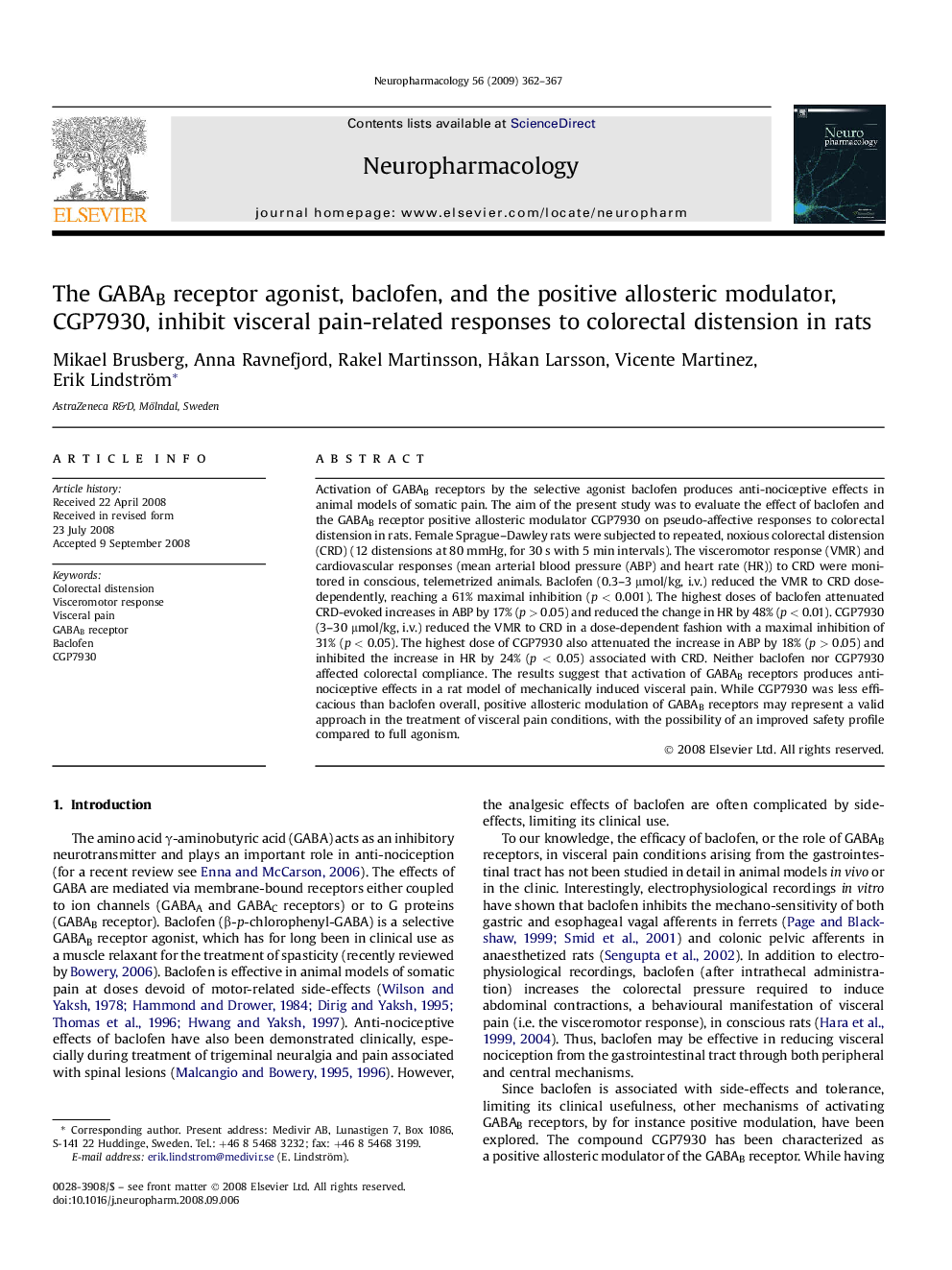| Article ID | Journal | Published Year | Pages | File Type |
|---|---|---|---|---|
| 2494249 | Neuropharmacology | 2009 | 6 Pages |
Activation of GABAB receptors by the selective agonist baclofen produces anti-nociceptive effects in animal models of somatic pain. The aim of the present study was to evaluate the effect of baclofen and the GABAB receptor positive allosteric modulator CGP7930 on pseudo-affective responses to colorectal distension in rats. Female Sprague–Dawley rats were subjected to repeated, noxious colorectal distension (CRD) (12 distensions at 80 mmHg, for 30 s with 5 min intervals). The visceromotor response (VMR) and cardiovascular responses (mean arterial blood pressure (ABP) and heart rate (HR)) to CRD were monitored in conscious, telemetrized animals. Baclofen (0.3–3 μmol/kg, i.v.) reduced the VMR to CRD dose-dependently, reaching a 61% maximal inhibition (p < 0.001). The highest doses of baclofen attenuated CRD-evoked increases in ABP by 17% (p > 0.05) and reduced the change in HR by 48% (p < 0.01). CGP7930 (3–30 μmol/kg, i.v.) reduced the VMR to CRD in a dose-dependent fashion with a maximal inhibition of 31% (p < 0.05). The highest dose of CGP7930 also attenuated the increase in ABP by 18% (p > 0.05) and inhibited the increase in HR by 24% (p < 0.05) associated with CRD. Neither baclofen nor CGP7930 affected colorectal compliance. The results suggest that activation of GABAB receptors produces anti-nociceptive effects in a rat model of mechanically induced visceral pain. While CGP7930 was less efficacious than baclofen overall, positive allosteric modulation of GABAB receptors may represent a valid approach in the treatment of visceral pain conditions, with the possibility of an improved safety profile compared to full agonism.
